
10-11 December 2020, Barcelona, Spain (Virtual Meeting)
GENERAL INFO
Advanced Microscopy techniques are widely recognized as one of the pillars onto which the research and manufacture of nanotechnology-based products are sustained. At present, the greatest challenge faced by these techniques is the realization of fast and non-destructive tomographic images with chemical composition sensitivity and with sub-10 nm spatial resolution, in both organic and inorganic materials, and in all environmental conditions. Scanning Probe Microscopes are currently one of the Advanced Microscopy techniques experiencing the fastest evolution and innovation towards solving this challenge. Scanning Probe Microscopes have crossed fundamental barriers, and novel systems exist that show potential unparalleled performance in terms of 3D nanoscale imaging capabilities, imaging speed, and chemical sensitivity mapping. During the last four years, a group of 14 PhD students has developed their thesis projects on this topic within the ITN SPM2.0. In this workshop, the PhD students will present their major findings. To promote the debate, two invited speakers external to the Network will present the latest advances based on other nanoscopic techniques.
The workshop will take place on-line and it is open and free to any researcher with no required previous registration.
Link to connect (TEAMs Platform): Workshop on Advanced Scanning Probe Microscopies
SPEAKERS
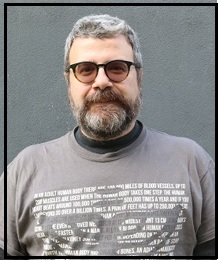 | 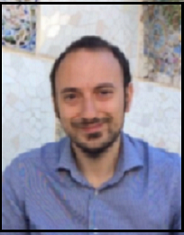 | |
| Video liquid transmission electron microscopy Prof. Giuseppe Battaglia University College of London Institute for Bioengineering of Catalonia (Invited Lecture) | Super-resolution optical microscopy in materials and life sciences Prof. Lorenzo Albertazzi Technical University of Eindhoven Institute for Bioengineering of Catalonia (Invited Lecture) | |
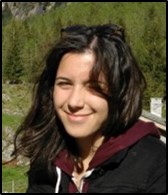 | 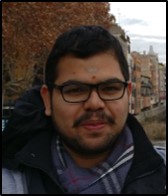 | 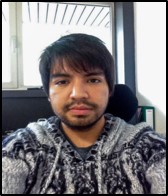 |
| Composition mapping of biomembranes by in liquid Scanning Dielectric Microscopy Martina Di Muzio Institute for Bioengineering of Catalonia (IBEC) | Characterization of nanowire nanocomposites by sub-surface electrostatic force microscopy Harishankar Balakrishna Institute for Bioengineering of Catalonia (IBEC) | Compression, rupture and puncture of model membranes at the molecular scale Oscar Saavedra Institut National de la Santé e la Research Medicale (INSERM) |
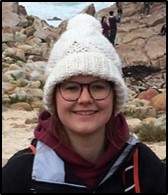 | 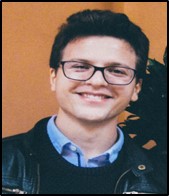 | 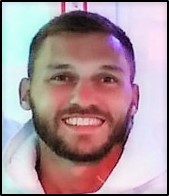 |
| Motility during bacterial predation in Myxococcus xanthus Sara Rombouts Institut National de la Santé e la Research Medicale (INSERM) | Fast, quantitative and high resolution mapping of viscoelastic properties with bimodal AFM Simone Benaglia Centro Superior de Investigaciones Científicas (CSIC) | Implementation, optimization and application of High-speed TREC Daniel Canena Johaness Kepler University of Linz (JKU) |
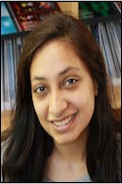 | 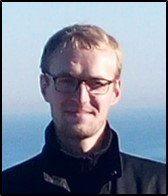 | 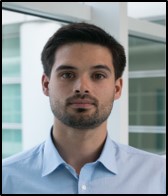 |
| Infrared nano-imaging and nano-spectroscopy in liquid environment Divya Virmani Nanoscience Cooperative Research Centre (NANOGUNE) | Substrate-enhanced and subsurface infrared near-field spectroscopy of organic layers Lars Mester Nanoscience Cooperative Research Centre (NANOGUNE) | Quantification and standardisation for advanced scanning probe microscopy Filipe Richheimer National Physical Laboratory (NPL) |
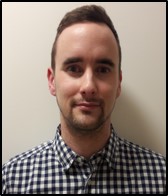 | 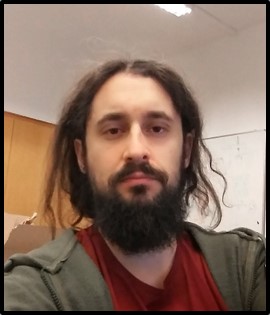 | 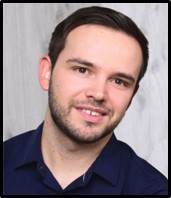 |
| Advanced electrical AFM techniques for characterization of charge-carrier dynamics and degradations in perovskite photovoltaics David Toth Keysight Technologies (KEYSIGHT) | Calibrated Scanning Microwave Microscopy using Tunneling Microscopy Ivan Alic Keysight Technologies (KEYSIGHT) | Ferroelectric polymers for MEMS applications – Towards soft and high-speed AFM probes Jonas Hafner Technische Universitaet Wien (TUW) |
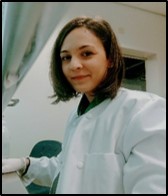 | 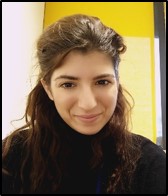 | |
| Scanning Probe Microscopy for Nanomedicine Maria Elena Persimoni Bio Nano Centre (BNC) | Oscillating Wetting/Dewetting Transitions In Organic Semiconductor Thin Films Sofia Drakapoulou Universita degli study di Modena e Reggio Emilia (UNIMORE) |
AGENDA
Thursday 10th December
| 9:00 – 9:15 | Welcome session Chair: Gabriel Gomila, Coordinator SPM2.0, IBEC |
| 9:15 – 10:00 | Invited Lecture (Other advanced nanoscopies) Video liquid transmission electron microscopy Prof. Giuseppe Battaglia, University College of London & IBEC |
| 10:00 – 11:00 | Session 1: Fast and High-speed AFM Chair: Pierre-Emmanuelle Milihet, INSERM Implementation, optimization and application of High-speed TREC Daniel Canena, JKU Ferroelectric polymers for MEMS applications – Towards soft and high-speed AFM probes Jonas Hafner, TUW Fast, quantitative and high resolution mapping of viscoelastic properties with bimodal AFM Simone Benaglia, CSIC |
| 11:00 – 11:15 | Break |
| 11:15 – 12:15 | Session 2: Composition mapping by SPMs Chair: Ranier Hillembrand, NANOGUNE Composition mapping of biomembranes by in liquid Scanning Dielectric Microscopy Martina Di Muzio, IBEC Infrared nano-imaging and nano-spectroscopy in liquid environment Divya Virmani, NANOGUNE Compression, rupture and puncture of model membranes at the molecular scale Oscar Saavedra, INSERM |
Friday 11st December
| 9:20 – 10:00 | Session 3: Sub-surface SPM Chair: Gabriel Gomila, IBEC Characterization of nanowire nanocomposites by sub-surface electrostatic force microscopy Harishankar Balakrishnan, IBEC Substrate-enhanced and subsurface infrared near-field spectroscopy of organic layers Lars Mester, NANOGUNE |
| 10:00 – 10:45 | Invited Lecture (Other advanced nanoscopies) Super-resolution optical microscopy in materials and life sciences Prof. Lorenzo Albertazzi, Technical University of Eindhoven & IBEC |
| 10:45 – 11:00 | Break |
| 11:00 – 12:00 | Session 4: Applications of SPM2.0 techniques Chair: Sebastian Wood, NPL Quantification and standardisation for advanced scanning probe microscopy Filipe Richheimer, NPL Oscillating Wetting/Dewetting Transitions In Organic Semiconductor Thin Films Sofia Drakopoulou, UNIMORE Advanced electrical AFM techniques for characterization of charge-carrier dynamics and degradations in perovskite photovoltaics David Toth, KEYSIGHT |
| 12:00 – 12:15 | Break |
| 12:15 – 13:15 | Session 4: Applications of SPM2.0 techniques Chair: Sebastian Wood, NPL Calibrated Scanning Microwave Microscopy using Tunneling Microscopy Ivan Alic, KEYSIGHT Scanning Probe Microscopy for Nanomedicine Maria Elena Persimoni, BNC Motility during bacterial predation in Myxococcus xanthus Sara Rombouts, INSERM |
| 13:15 – 13:30 | Closing remarks |
